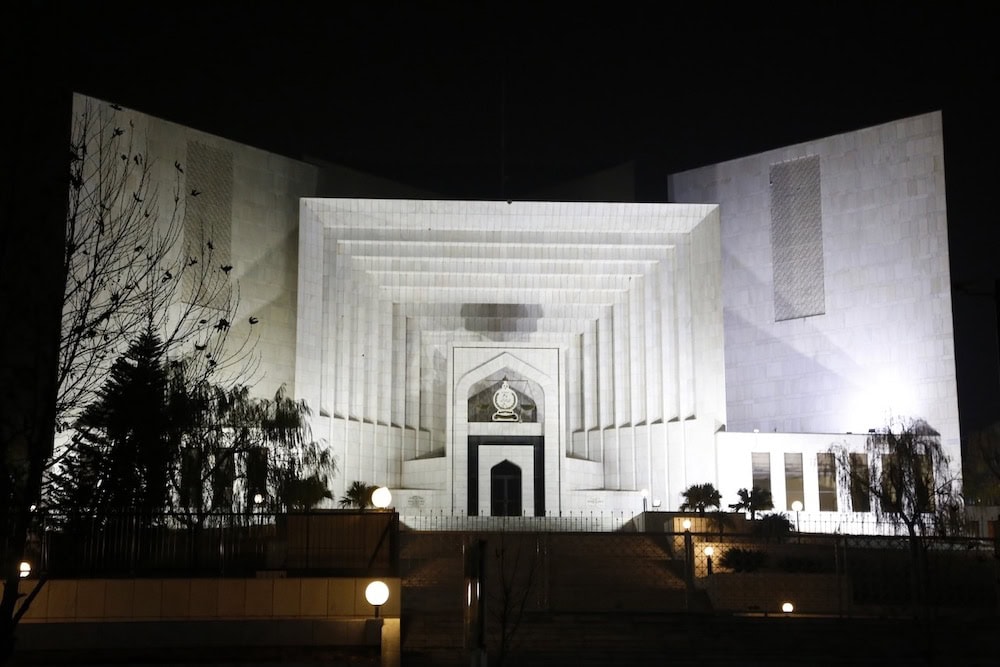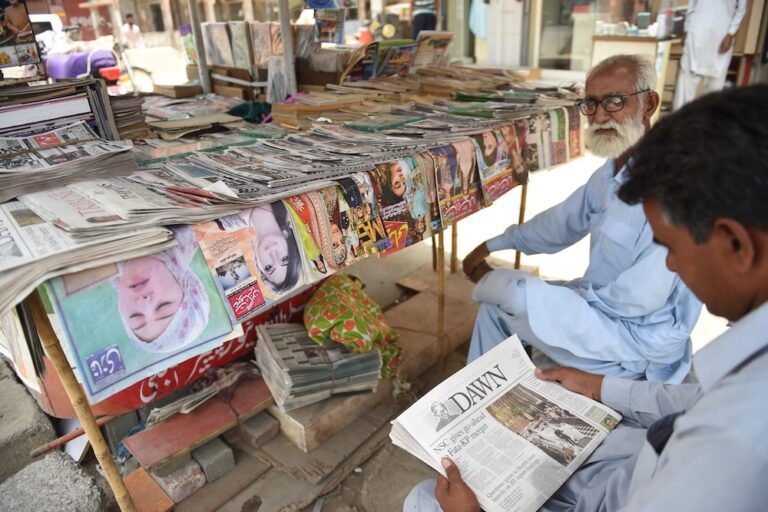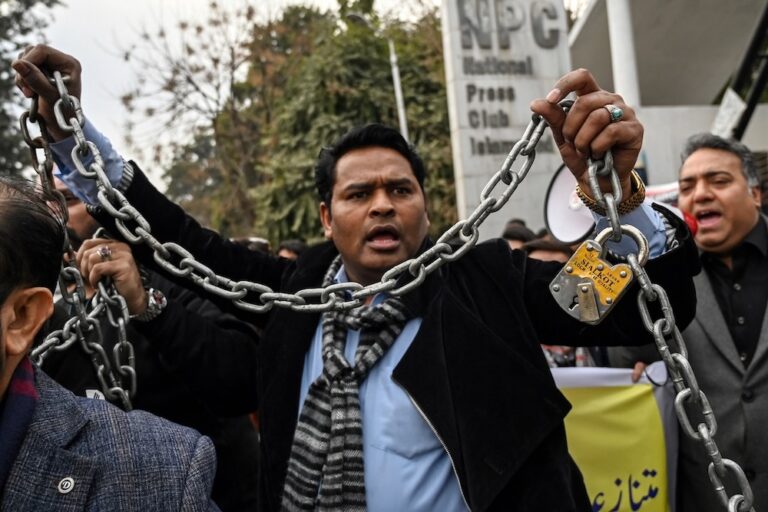Pakistan Press Foundation warned that the show-cause notices could further restrict the live broadcast of political events.
This statement was originally published on pakistanpressfoundation.org on 5 July 2024.
Pakistan Press Foundation (PPF) has expressed concern at the decision of the Supreme Court of Pakistan to issue show-cause notices to 34 television channels for broadcasting press conferences by Senator Faisal Vawda and Member of the National Assembly Mustafa Kamal. The show-cause notices will further restrict the live broadcast of political events due to the fear of contempt of court proceedings.
PPF believes it is the responsibility of the media to inform the public while working within Constitutional boundaries; however, it is concerning that the media can be held responsible for remarks made by elected political leaders during press conferences broadcast live. The court’s direction to the media to submit details of the advertisements aired around the press conferences, and the payment received for the advertisements is tantamount to financial pressure and opens the door for other State instruments to make similar demands.
On June 5, the SC issued notices to 34 television channels for airing Vawda’s press conference and 28 for airing Kamal’s press conference, both of whom tendered unconditional apologies to the apex court. The media channels were asked to submit their replies within two weeks.
On June 28, in the order, the court directed the Pakistan Electronic Media Regulatory Authority (PEMRA) to issue show-cause notices to the television channels “as to why they should not be proceeded against for committing contempt of court.” The order also required television channels to provide details of advertisements before, during, and after the press conferences. The television channels were also ordered to submit details of revenue earned from these advertisements.
During the hearing, the court dismissed the preliminary reply from Faisal Siddiqui, the lawyer representing 26 channels, that malintent needs to be established in contempt and that broadcasting press conferences are in the public interest.
The court order noted that the press conferences were broadcast and rebroadcast after the contemptuous comments continued, and no retraction or apology was made.



